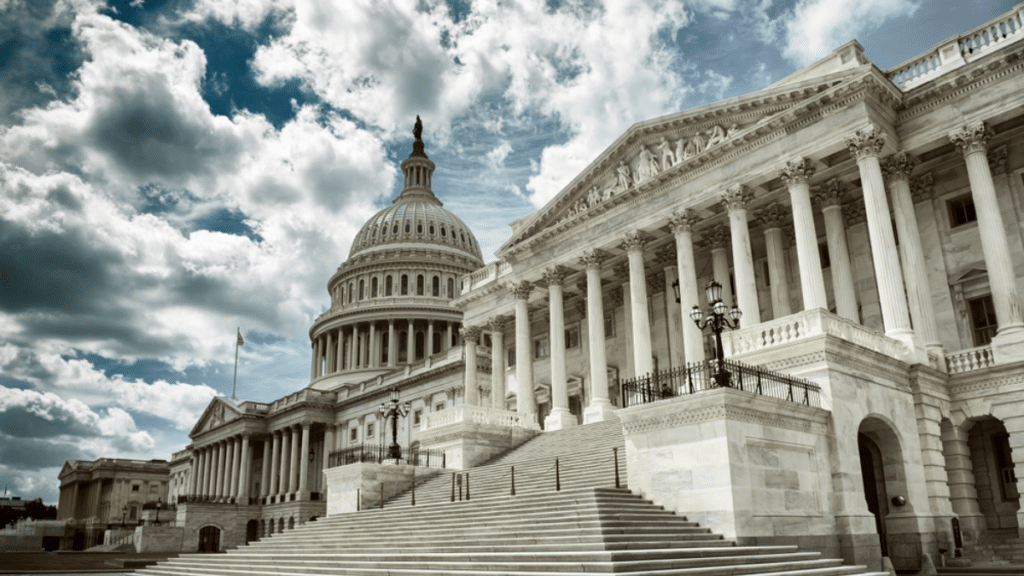How a US Government Shutdown Risks Expanding the Digital Divide
Cedric Watkins / Nov 14, 2023Cedric Watkins is the Government Affairs Policy Advocate at Public Knowledge.
As a government shutdown looms over the nation, millions of Americans risk losing internet access. Americans have come to rely on the Affordable Connectivity Program, or ACP, for a $30/month broadband subsidy to stay connected to their communities. Many will be forced to go without, from families who receive Medicaid and SNAP benefits to veterans and Pell Grant recipients.
As costs for everything from housing to healthcare continue skyrocketing, families who struggle to make ends meet will have to choose between putting food on the table and having essential broadband access. Congress can easily resolve this by simply funding the program. While the program has bipartisan support, the ACP hangs in the balance because the potential government shutdown is delaying funding progress.
Congress passed a short-term budget fix – a continuing resolution, commonly referred to as a CR – in September to keep the government running temporarily, and while that spending bill offers relief for millions of federal employees, government contractors, and service members who faced potential furlough, this extension won’t last long. The current CR expires on November 17, leaving Congress little time to act on an omnibus spending bill, or else the government will face another shutdown – jeopardizing the ACP and the millions of Americans who rely on it to stay connected.
As the House begins regular work again after weeks spent selecting a new speaker, Congress remains divided and will almost certainly need another CR to avert a shutdown. In the midst of it all, the ACP is still in need of additional funding. Funds are expected to run out as early as April of next year, with broadband providers expected to wind down the program as soon as December. With only a few legislative days left on the calendar, Congress must act. But CRs will do nothing to replenish the ACP. Congress must authorize a separate funding vehicle if the program is to continue.
When tensions run high on Capitol Hill, continuing resolutions can keep the doors open, but they’re problematic. As the Government Accountability Office explained in a recent report, temporary budgets can slow hiring, create funding uncertainty, and cause administrative burdens. They also have various political implications and foster an atmosphere of political favoritism and arbitrary spending levels. In the final hours of any CR negotiation, allocations are made on the whim and on a “must pass” basis without an open and transparent process – a process shown to further partisan divides and increase political mudslinging.
If Congress allows the ACP to end, Americans are at risk of losing affordable access to the internet, harming low-income communities, Tribal communities, and communities of color. Many are living paycheck to paycheck and have incorporated in their monthly budget the ACP subsidy, which offers much-needed relief. If Congress fails to act, vulnerable communities across the nation will literally pay the consequences. These communities often suffer from dilapidated broadband infrastructure and unreliable connectivity, and many residents can’t afford the service that is offered in these areas.
As we rely on the Broadband Equity Access Deployment program to deploy broadband into underserved areas, we must have a program in place to assist with affordability. This is why funding the ACP is imperative. The ACP has proven that it's the best affordable broadband subsidy program offered for low-income families.
Many have debated whether the ACP should be reformed before it receives additional funding. However, that could increase the digital gap. Reforming the program will make it more difficult for consumers to receive the relief they already qualify for and would devastate the very people who need the program the most. Even lowering the income eligibility threshold to 135% of the federal poverty line would cut a whopping 7.4 million currently eligible households from the ACP. Such a cut would overwhelmingly affect veterans and older adults.
While program reform remains an open discussion, we should focus on the immediate demand for program funding and not find new ways to cut Americans out of an essential federal benefit. Some in Congress are also focused on the laudable goal of creating a permanent funding vehicle to support subsidies for needy families. Efforts to craft this program should not create greater harm by letting the ACP funding lapse during the detailed process of structuring a long-term solution.
The White House is also on board for funding the ACP. President Joe Biden sent a clear message to Congress upon releasing his domestic supplementary budget request, which included $6 billion to extend the program. We applaud the efforts of the President. We urge Congress to not only approve the White House budget request but also to add an additional $1 billion to ensure the ACP can continue beyond the cutoff date.
Nationwide, there are over 21 million American households enrolled in the ACP. Congress must ensure that affordable internet service is available to all those who need it. Continuing resolutions serve their purpose and can be beneficial, but they are only a limited remedy. A wide array of community advocates and industry organizations have sent a clear message to Capitol Hill: Fund the ACP! Their ability to connect and communicate depends on it.
Authors

